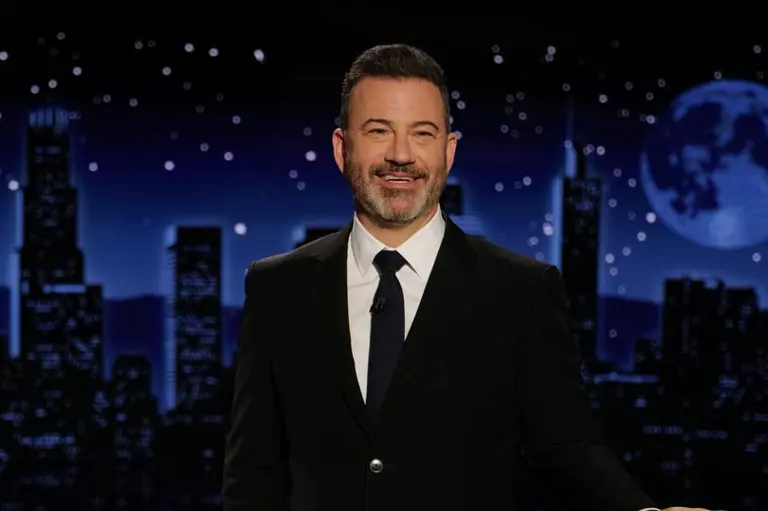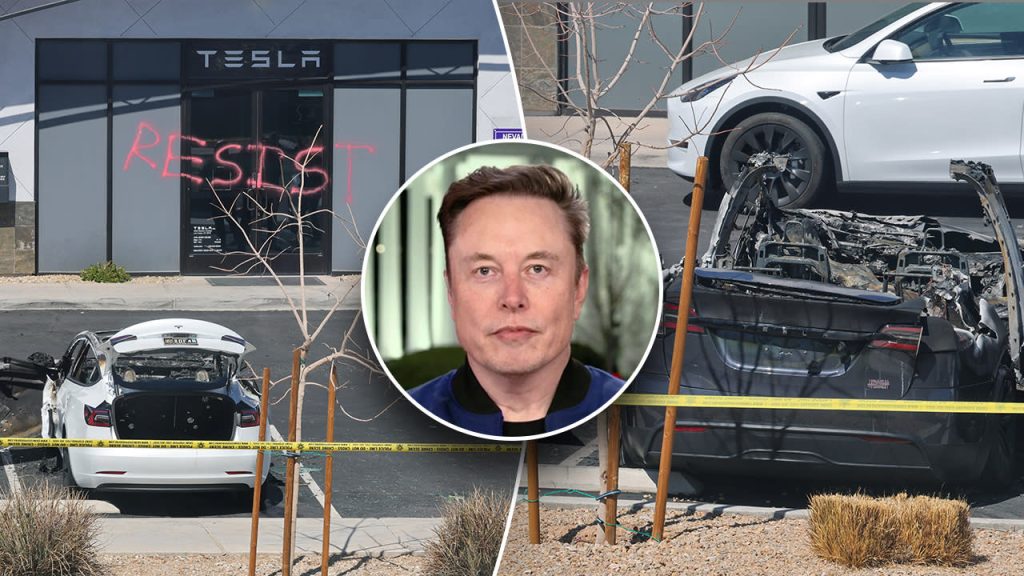Jimmy Kimmel found himself at the center of a heated debate over free speech and political violence this week after a sarcastic quip about Tesla vandalism on his late‑night show was widely interpreted as a veiled call to action. The controversy underscores how rapidly seemingly off‑hand remarks can ignite partisan backlash—particularly when they intersect with volatile disputes involving public figures like Tesla CEO Elon Musk.
The Late‑Night Quip That Sparked Outrage
During his March 18 monologue on Jimmy Kimmel Live!, the ABC host addressed reports of vandalism targeting Tesla vehicles amid growing backlash against Musk’s role in President Trump’s administration. With a deadpan delivery and a knowing pause, Kimmel told his studio audience: “People have been vandalizing Tesla vehicles… Please don’t vandalize. Don’t ever vandalize Tesla vehicles,” prompting laughter that quickly went viral online.
Though framed as sarcasm, the line immediately drew criticism from conservative commentators who viewed it as tacit encouragement for property damage.
Accusations of Incitement and Political Backlash
Within hours, CNN political commentator Scott Jennings accused Kimmel of issuing “marching orders” for violent acts against Tesla, declaring on X that “this isn’t comedy—these are marching orders.”
Prominent MAGA figures joined the chorus, demanding Kimmel be fired and threatened lawsuits from Tesla owners. Tesla CEO Elon Musk himself weighed in with a terse rebuke: “What a jerk,” he tweeted, amplifying the spectacle of a public feud between two of America’s most high‑profile media personalities.
Tesla Under Siege: A Wave of Vandalism
Kimmel’s joke comes against a backdrop of real‑world attacks on Tesla property. Since early March, Tesla dealerships nationwide have been firebombed, graffitied, and shot at—incidents that authorities and company spokespeople have labeled “nothing short of domestic terrorism.”
Late‑night hosts have pointed to Musk’s high‑profile role in Trump’s “Department of Government Efficiency” and his abrupt layoffs of thousands of employees as key drivers of public outrage. In London and Portland alike, angry protesters have targeted Tesla vehicles and charging stations, while Tesla’s stock price has plummeted by nearly 40% since January.
Elon Musk’s Response and the ‘Victim’ Narrative

Musk described the vandalism as inexplicable hostility toward “a peaceful company,” framing himself as the victim of politically motivated violence. Kimmel responded on Wednesday’s show by pointing out the irony of Musk’s complaints given his own contentious public actions. “When you pull out a chainsaw to celebrate firing thousands of people, they get mad,” Kimmel quipped—linking Musk’s perceived insensitivity to workers with the backlash against his company.
Legal Ramifications and Political Stakes
Attorney General Pam Bondi has vowed to treat the wave of attacks on Tesla property as domestic terrorism, warning perpetrators they face stiff federal penalties. Several suspects have already been arrested and charged with five‑year mandatory minimum sentences. Meanwhile, Republican lawmakers have called for new federal anti‑vandalism legislation and greater enforcement of existing statutes. Critics of the “woke” left argue that political violence is being normalized and even celebrated, while defenders of Kimmel insist his comments were clearly satirical, protected by the First Amendment.
The Role of Comedy in Political Discourse
Kimmel’s gibe illustrates the fine line late‑night comedians tread between satire and perceived endorsement of extremist actions. In an era when audiences mine clips for partisan ammunition, even a sarcastic admonition not to vandalize can be reframed as incitement. Legal experts caution that context matters: true incitement requires a direct call to imminent lawless action, a threshold unlikely met by Kimmel’s performance. Yet the uproar highlights how late‑night comedy increasingly intersects with real‑world consequences.
Looking Ahead: Accountability and Consequences
As the dust settles, two parallel investigations unfold: law enforcement pursues those responsible for Tesla property damage, and media watchdogs debate whether Kimmel’s network should sanction him for his sarcastic remark. Musk’s allies demand accountability, while civil liberties advocates warn against chilling satire under threat of legal reprisal. Ultimately, this clash of culture and comedy raises broader questions about the boundaries of speech in a politically fractured America—where a single offhand joke can become a flashpoint in the nation’s simmering culture wars.

